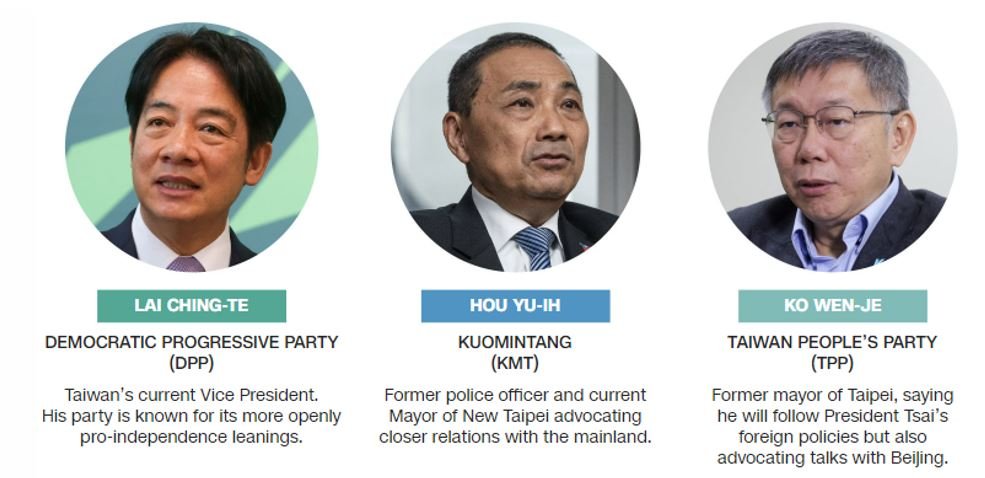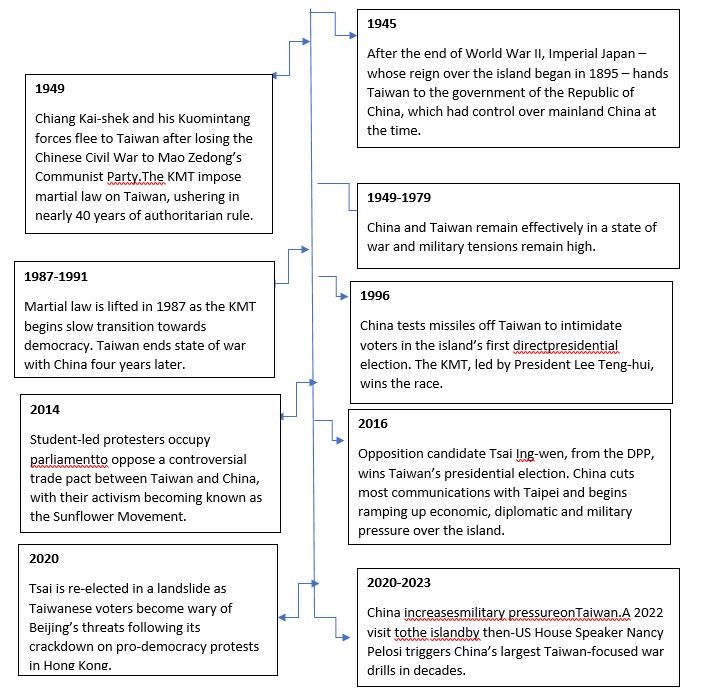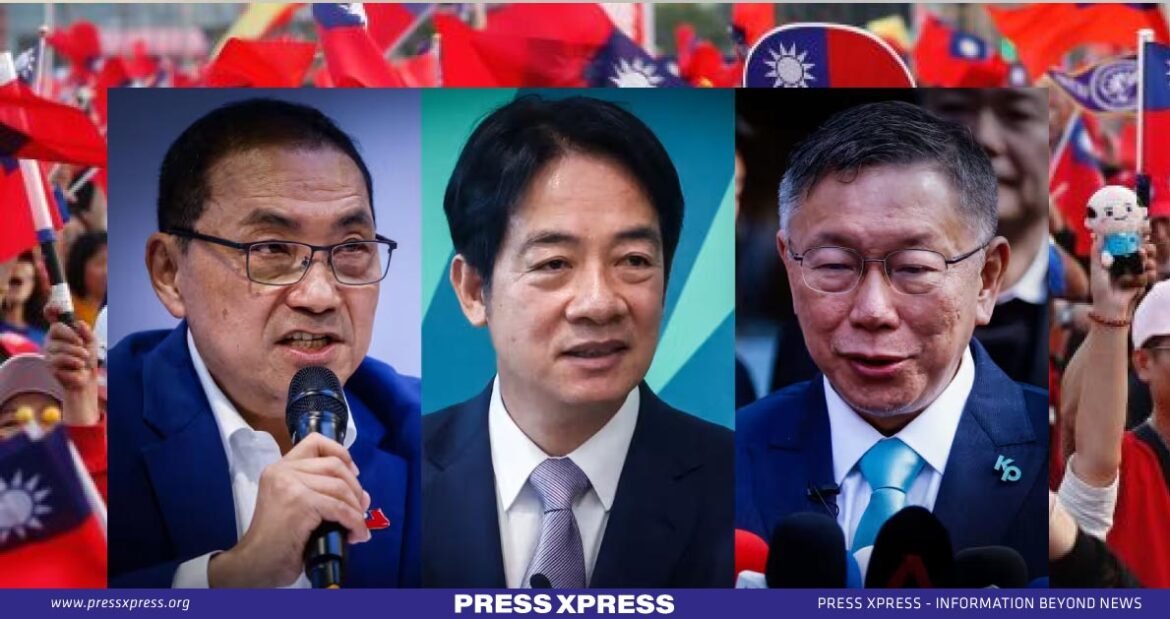Taiwan’s more than 19 million eligible voters will exercise their voting rights on Saturday (January 13) to choose the island’s future leaders and lawmakers. This occurs against the backdrop of domestic economic challenges and ongoing threats from China against the self-governed territory.
In Taiwan, soaring housing costs and stagnant wages are pressing concerns for many. However, beyond economic issues, residents also grapple with the existential threat of the Chinese Communist Party (CCP) aiming to seize control, even by force if deemed necessary.
In the run-up to the polls, it has sent military aircraft and balloons around the island while its officials have urged voters to make the “right choice”.
While Beijing claims Taiwan as part of China, the island’s residents, raised in a vibrant democracy, have grown more assertive in recent years about their distinct identity.
According to National Chengchi University’s Election Study Center, 62.8 percent of people identified as Taiwanese as of June 2023, while 30.5 percent said they were both Taiwanese and Chinese, and only 2.5 percent identified as Chinese.

A Close Fight
There are three candidates in the running for the race: William Lai Ching-te, Taiwan’s current vice president who represents the ruling Beijing-sceptic Democratic Progressive Party (DPP); New Taipei mayor Hou Yu-ih of the Beijing-friendly Kuomintang (KMT); and ex-Taipei mayor Ko Wen-je of the newer Taiwan People’s Party (TPP).
Lai, 64, a former doctor and politician, vows to maintain President Tsai’s strategy of keeping Beijing at bay, strengthening ties with the U.S., and implementing economic reforms.
Hou, 66, the Nationalist candidate and current New Taipei mayor, aims for stable China relations, military buildup, and close ties with Washington.
Ko, 64, a surgeon and third-party candidate, prioritizes housing and proposes practical steps to enhance ties with China. Even if Ko loses, his Taiwan People’s Party could wield influence in the upcoming legislature, where the D.P.P. is expected to lose its majority. No party is likely to secure more than half the seats this time.
China Warns Voters, Condemns US ‘Brazen Chattering’
China has warned voters in Taiwan to make the “right choice”, saying that a win for the ruling party candidate William Lai would pose a danger to relations.
It also criticized “brazen chattering” by the US after Washington warned Beijing not to stoke tensions ahead of the polls.
Who wins the poll could push the island further towards, or away from, Beijing.
China’s Taiwan Affairs Office said Mr Lai would further promote separatist activities if he were elected.
“[He] would continue to follow the evil path of provoking ‘independence’ and… take Taiwan ever further away from peace and prosperity, and ever closer to war and decline,” it said in a statement.
China’s message to voters came as it told the US to stop commenting on the election.
Beijing has said Taiwan’s voters face a choice between peace and war in the elections.
On Thursday (January 9) Taiwan’s Foreign Minister Joseph Wu criticized China for its “repeated interference” in Saturday’s vote.
“Frankly, Beijing should stop messing with other countries’ elections & hold their own,” Mr Wu posted on X, the social platform formerly known as Twitter.
What Taiwan’s Election Could Mean for the Island and the World
The election’s outcome has the potential to either elevate or diminish the risks of a wider crisis. This could serve as a pivotal moment for China to rekindle diplomatic engagement or escalate military threats, potentially leading to the United States becoming entangled in a conflict.
Xi Jinping has increased China’s claim on Taiwan through frequent military deployments. While the U.S. maintains strategic ambiguity, President Biden has signaled readiness to defend Taiwan against a Chinese attack, supporting the island’s military.
Despite escalating military pressure from China, invasion seems unlikely. Regardless of the election outcome, Beijing is expected to maintain pressure on Taiwan, using various tactics such as economic incentives or military incursions.
The choice of Taiwan’s next president, particularly if it’s Mr. Lai, concerns Beijing, and economic punishments or diplomatic isolation are potential responses.
Taiwan’s next president will be sworn into office on May 20, and China may use the time before then to test the incoming leader.
The U.S. may encourage caution to the new Taiwanese leader amid global challenges. A victory for Mr. Hou could ease tensions, but long-term peace remains challenging given Xi’s insistence on Taiwan’s unification with China.
The topic of China is both of deep concern for people in Taiwan, yet many are tired of discussing it. Over the years, China’s threats have intensified, leading to increased civil defense preparations with thousands joining groups, local militia training funded by tech tycoons, and indications of investors and dual citizens creating contingency plans.
Timeline of political tensions across the Taiwan Strait



